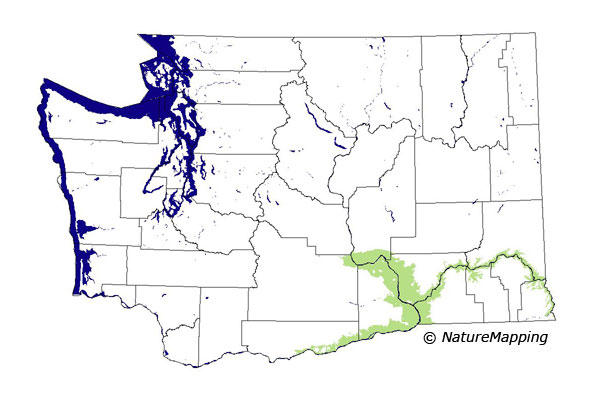 |
Metadata (Data about data or how the map was made)
Legend:
 = Core Habitat
= Core Habitat
 = Marginal Habitat
= Marginal Habitat
Predicted Distribution
Amphibians do not migrate as some birds and mammals, so the colored areas depict
the predicted range for the Woodhouse's Toad year-round. The habitats were
identified using 1991 satellite imagery, other datasets and experts throughout
the state, as part of the Washington Gap Analysis Project.
Other
maps & Information:
|
Distribution and Habitat Requirements
Very little is known about
Woodhouse's Toad in the Northwest. It lives in a variety of habitats including sagebrush flats, riparian areas (areas along rivers and streams) and
prairie fields. It can also be common in urban parks and gardens. It uses shallow, self dug or rodent burrows.
It enters Washington State only along the Snake and Columbia Rivers.
Models
The Columbia Basin ecoregion was selected. The Central Arid Steppe and Canyon Grasslands zones were core areas.
Lakes, marshes, rivers and riparian areas were good habitats. Grasslands, shrub and tree savannas, shrublands, low-density developed
residential areas including parks and golf courses and irrigated row crops were suitable if appropriate microhabitats existed.
Webpage designed by Dave Lester.